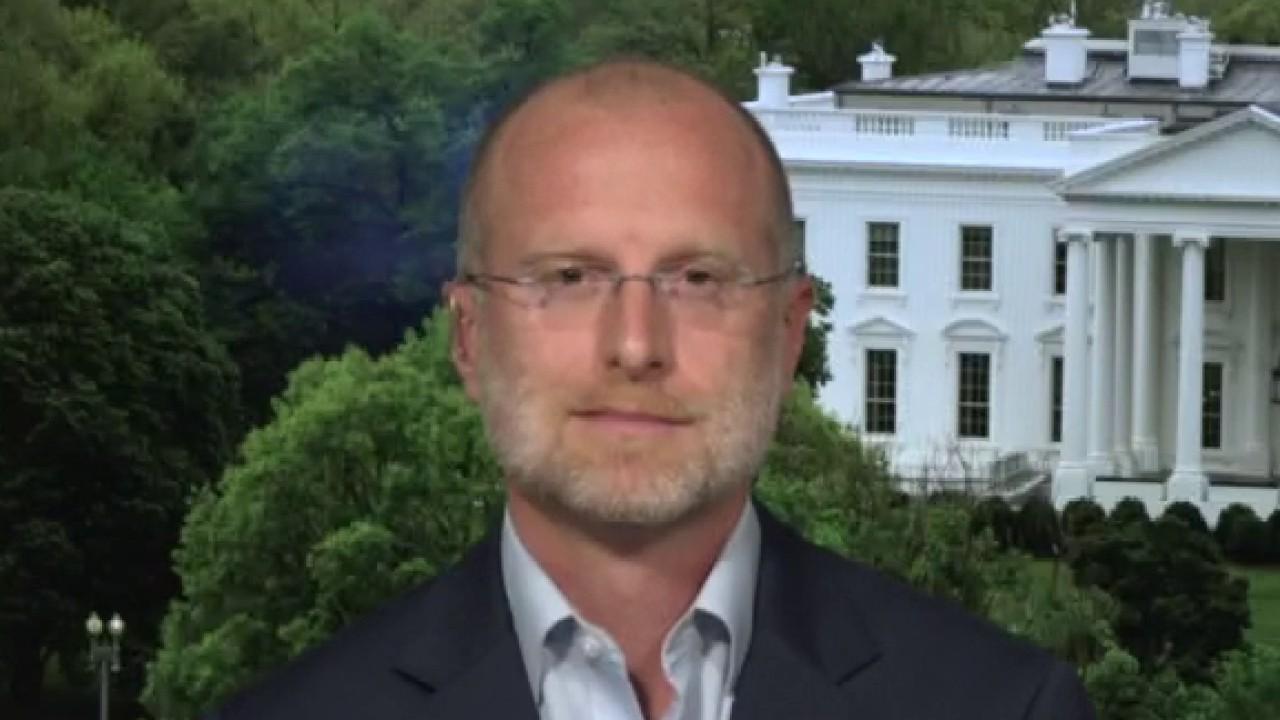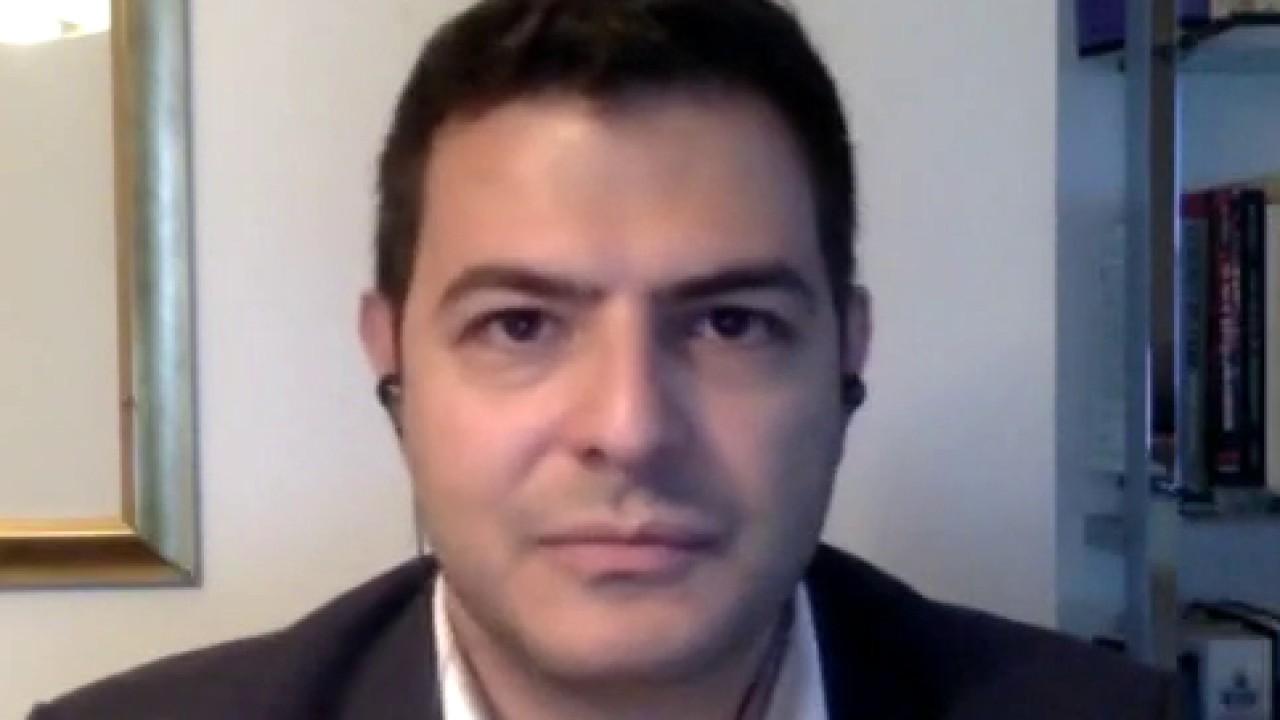Big Tech's censorship of Hunter Biden report is a violation of free speech: FCC commissioner
'I think Big Tech has crossed a line,' Brendan Carr tells Fox Business Network
FCC Commissioner Brendan Carr slammed Big Tech on Thursday for censoring users who tried to share a New York Post article about Hunter Biden.
“By silencing core political speech on this important story, I think Big Tech has crossed a line,” Carr told "Cavuto: Coast to Coast” on Thursday. “For those of us in the conservative movement, we’ve long been talking about the need to rein in Big Tech.”
“I think it’s one of the greatest threats to individual liberty and this week was a watershed moment with the attention drawn to the censorship engaged in by Big Tech,” he continued.
On Wednesday afternoon, New York Post business reporter Noah Manskar first alerted that the outlet's official Twitter account had been locked due to the Biden story being sourced from allegedly "hacked" information.
SEN. COTTON WARNS BIG TECH OVER CENSORSHIP: 'WINTER IS COMING'
Twitter also locked several other accounts, including that of White House Press Secretary Kayleigh McEnany and NewsBusters managing editor Curtis Houck after they shared the article. Facebook also limited the distribution of the story, claiming that they would rely on its fact-checking partners to determine its legitimacy.
The Post report, which Fox News has not independently verified, contained a purported email between Hunter Biden and an adviser to Ukrainian energy company Burisma Holdings, who thanked the younger Biden for "giving an opportunity" to meet then-Vice President Joe Biden.
The Biden campaign said the former vice president engaged in “no wrongdoing” and the alleged meeting didn't take place.
Twitter CEO Jack Dorsey addressed the controversy late Wednesday, calling his company's actions "unacceptable."
"Our communication around our actions on the @nypost article was not great," he tweeted. "And blocking URL sharing via tweet or DM with zero context as to why we’re blocking: unacceptable."
Carr stressed on Thursday that reforms must be made to Section 230 of the 1996 Communications Decency Act so that “we can put Internet platforms to their actual statutory burden.”
Section 230 states that "No provider or user of an interactive computer service shall be treated as the publisher or speaker of any information provided by another information content provider."
It has been pivotal in the rise of social media by allowing not only Internet service providers, but also Twitter, Facebook, YouTube and others to be shielded from liability from content posted on their platforms by third parties in most cases.
Carr pointed to a May comment from Facebook CEO Mark Zuckerberg calling out Twitter for attaching a fact check to a tweet from President Trump, saying that privately-owned digital platforms should not act as the "arbiter of truth."
“Well what did Facebook do just this week? They stopped the spread of a story before their fact-checkers could even decide whether it was true or not,” Carr said. “There is no arbiter of truth that comes down like manna from heaven and makes these decisions. That’s why we should entrust people to make these decisions for themselves.”
President Trump signed an executive order in May that aims to allow government institutions like the FCC to monitor companies that make editorial decisions on user content and take away the law's "liability shield" if platforms engage in user "censorship."
The order also calls for a closer look at the law's use of the phrase "in good faith" regarding platforms' decision to voluntarily "restrict access to or availability of material."
Carr noted that Congress passed the Communications Decency Act in the mid-1990s and said Section 230 “was designed to address the very limited type of content moderation that Internet websites were engaged in back then.”
“Flash forward to today and now we have these Internet behemoths that are not promoting a diverse political discourse to use the terms and purposes of 230, they’re using it to squelch speech,” he added.
“Everyone has a First Amendment right to weigh in on these issues, including these websites. The question is, are they doing it consistent with the special immunities that they’ve received in 230? I don’t think they are and I think we’re seeing that this week.”
Republican Sens. Ted Cruz, Lindsey Graham and Josh Hawley on Thursday called on the heads of Twitter and Facebook to testify before Congress, as critics claimed the social media platforms have been censoring reporting critical of Democrats.
A Facebook spokesperson did not immediately respond to a request for comment, while Twitter declined to comment on the GOP requests to appear on Capitol Hill.
GET FOX BUSINESS ON THE GO BY CLICKING HERE
Host Neil Cavuto asked Carr on Thursday what exactly would be considered objectionable material that should be removed from social media platforms.
In response, Carr said the FCC “could step in and provide some guidance about what qualifies as sufficiently objectionable to come down.”
“If it’s terrorist content, I think that stuff’s an easy call,” Carr explained. “If it’s core political speech, which is really what we’re talking about here, I think we should let the people decide for themselves to make their own minds up about that type of content.”
CLICK HERE TO READ MORE ON FOX BUSINESS
FOX Business’ Evie Fordham and Fox News’ Brooke Singman and Marisa Schultz contributed to this report.





















